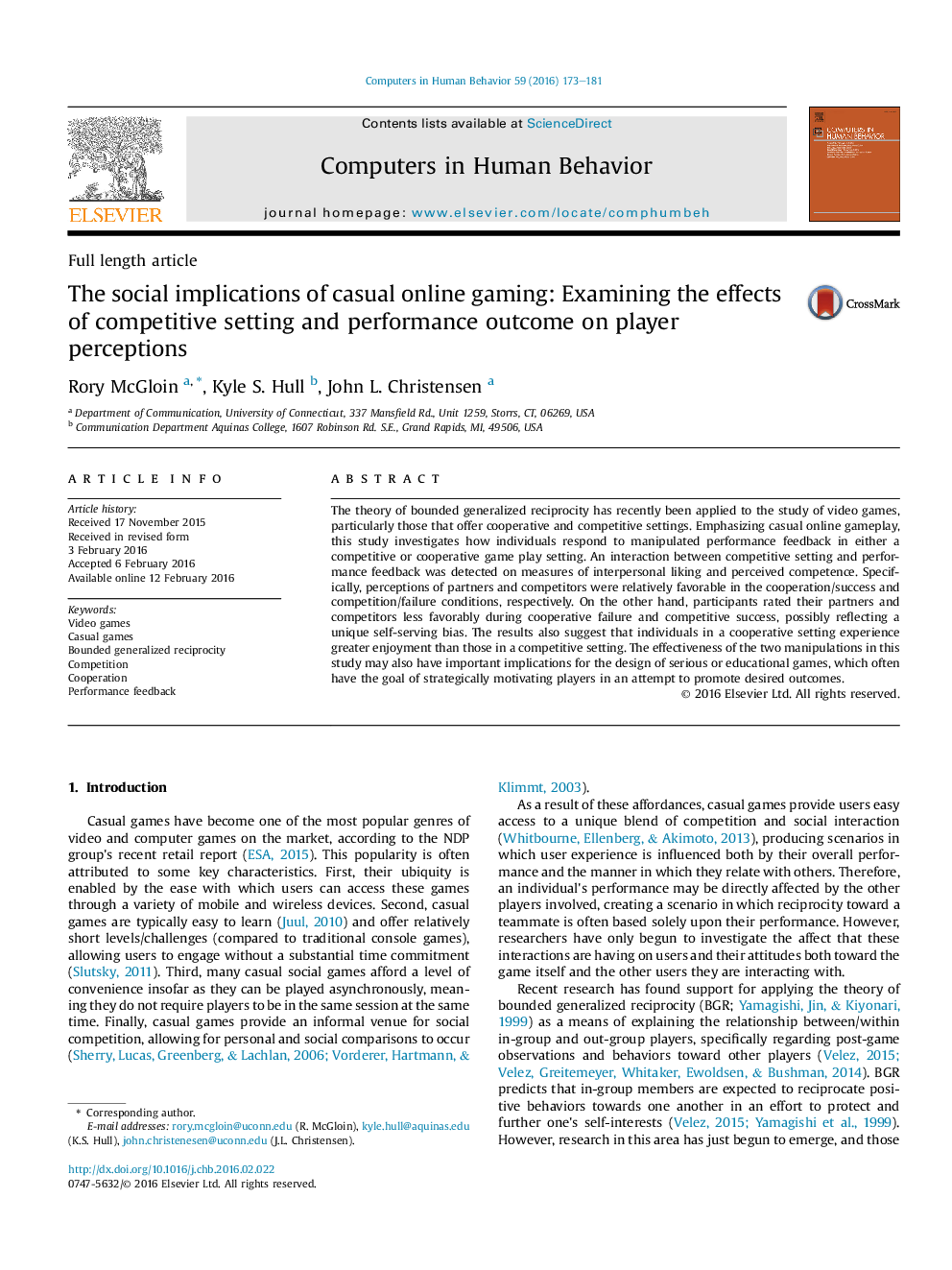| Article ID | Journal | Published Year | Pages | File Type |
|---|---|---|---|---|
| 6837409 | Computers in Human Behavior | 2016 | 9 Pages |
Abstract
The theory of bounded generalized reciprocity has recently been applied to the study of video games, particularly those that offer cooperative and competitive settings. Emphasizing casual online gameplay, this study investigates how individuals respond to manipulated performance feedback in either a competitive or cooperative game play setting. An interaction between competitive setting and performance feedback was detected on measures of interpersonal liking and perceived competence. Specifically, perceptions of partners and competitors were relatively favorable in the cooperation/success and competition/failure conditions, respectively. On the other hand, participants rated their partners and competitors less favorably during cooperative failure and competitive success, possibly reflecting a unique self-serving bias. The results also suggest that individuals in a cooperative setting experience greater enjoyment than those in a competitive setting. The effectiveness of the two manipulations in this study may also have important implications for the design of serious or educational games, which often have the goal of strategically motivating players in an attempt to promote desired outcomes.
Related Topics
Physical Sciences and Engineering
Computer Science
Computer Science Applications
Authors
Rory McGloin, Kyle S. Hull, John L. Christensen,
